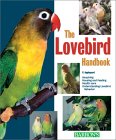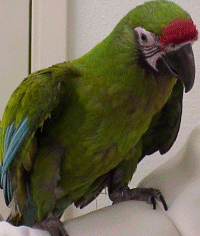Parrot Safety
Parrots make wonderful, enchanting pets, but they also require special care and a very safe environment in order to live long, healthy lives. Parrots tend to be more prone to accidents. Their extreme intelligence makes them curious so they will often “explore” and end up in dangerous situations. It is a good idea to make your house child safe when you bring home a parrot. Most birds will get into the same kinds of trouble that a 2-year-old human child will get into. They will taste test the potpourri, chew through an electrical cord, or jump into a sink full of water. Because parrots have small, sensitive lungs, they cannot be exposed to strong chemicals and fumes. Many “unexplained” parrot deaths have been due to exposure to overheated nonstick cookware or scented cleaners. Watch out for poisonous plants and foods. If you follow certain guidelines, you can be reasonably assured of your pet’s health and safety.To Clip or Not to Clip
The issue of wing clipping raises the hackles of many a bird breeder and owner. Some insist that clipping the birds wings is cruel. Others state with equal vehemence that not to clip a bird’s wings is like sending it to a certain death. First, it is important to understand what it means to clip a bird’s wings. This is not the same as pinioning a bird, which is a permanent crippling of their ability to fly. A wing clipping is temporary. Most birds will regain the ability to fly within six to twelve weeks, depending on how many wings were trimmed and the age of the bird. A young bird can sometimes be flying again within four weeks. The clipping causes no physical pain and no bleeding. There are clear arguments supporting both sides of this issue. If you absolutely cannot stand the idea of clipping wings you must accept full responsibility for this choice and make your home safe for the fully flighted bird. This means no whirling ceiling fans and absolutely safe rooms where doors do not lead to the outside. Most domestically raised parrots do not fare well in the big outdoors. You may see wild parrots thriving in many suburban and urban settings, but frankly, most parrots that fly out a window do not survive. I recently witnessed a blue and gold macaw being mercilessly attacked by crows. Breeding birds kept in large flights should be left fully flighted. They need the exercise flight affords them, and they sometimes need to escape from an aggressive mate. Generally, breeding facilities can be built in such a way that the birds are not at risk for escape.
Free Bird
The natural intelligence and curiosity of parrots can get them into trouble faster than any cat (you can read this both ways!). If you let your bird roam freely you are at risk of it chewing through electrical wires, chewing treated woods or paint, swallowing something that will damage their gizzard or digestive tract, or chewing items with zinc. Allowing a bird to walk around on the floor also puts it at risk of being stepped on or kicked across the room. This also creates issues of dominance. “Floor walkers” tend to become “toe biters” and can end up being extremely aggressive toward feet. It allows birds with territorial aggression to increase the “area” they feel inclined to protect. Another problem with letting a bird roam freely and unsupervised is that some birds like to cuddle. They will crawl under a cushion or blanket and make themselves at home. Should you not realize the bird is hidden under a pillow on your couch, you could easily sit on the bird. This happens all the time and brings us to an urgent warning: do not sleep with your bird. This is a recipe for disaster. You cannot control your movements when you sleep. Even a large macaw is no match for a full-grown adult who has suddenly rolled his or her full weight onto the bird.
Polly Wants a Cracker…My Chips…and a Sip of My Coffee…
If you love junk food, do not pass along tidbits to your bird. Parrots cannot excrete salt the way humans can, so highly salted treats such as chips and french fries should not be fed. Also avoid foods high in fat or sugar. Parrots easily develop bad eating habits, so it is unwise to encourage unhealthy snacking. Resist the temptation to give your “begging” bird any junk food. If you don’t ever feed these things, the bird will not learn to beg for them. Certain foods present immediate hazards to birds. Avocado is toxic to many parrots, particularly African species. Do not feed guacamole. Any foods that containtheobromine should be avoided. These include chocolate, coffee, tea, and cocoa. Sodas are loaded with sugar, which can cause hyperactivity in birds.
Canary in a Coal Mine
Canaries were used in coal mines because they would succumb to fumes before they were at levels deadly to humans. Fumes that are harmless to us can kill birds within seconds. Some families have lost pets to hidden Teflon in space heaters and other appliances. Teflon fumes are absolutely deadly to birds. Deaths occur frequently because people keep nonstick cookware in their homes figuring they will never overheat it. Humans make mistakes and forget pans on the stove, so it is best to get rid of nonstick cookware. Other hazards include scented aerosol sprays and other spray chemicals, essential oils, scented candles, and anything using pine scenting. There are alternatives for many bug sprays.










